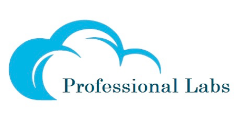Running a business is more than a full-time job, small to medium businesses can often find their in-house IT department stretched to capacity dragging down productivity. As a result, it can be difficult to devote the necessary time and effort to deploying and managing the latest business technologies. Businesses today rely heavily on technology, which means that they need support that can rapidly fix problems. Well- run organizations need the time and resources available to work on strategic projects as opposed to daily IT tasks.
How do you know it is time to some outside help? For some companies, their help desk is the logical first step. Check out some questions to ask yourself:
1. Are you looking for ways to reduce IT costs?
If you choose to keep support services internally, you must bear the cost of recruitment, training and hardware for these IT employees for the day to day issues. Finding a help desk partner who offers scalable services that can grow when the need is there. This can save you significant costs in the long run.
2. Does your help desk experience a high volume of calls?
No one knows your company’s IT landscape better than your in-house IT staff. They know how your systems are configured, what issues commonly crop up, and which users are most likely to call for help.
But the more time your in-house IT department spends on help desk tickets, the less time they can devote to mission-critical tasks. That’s an important consideration. By outsourcing your help desk to a managed IT services provider, you free up your in-house personnel to put their technical skills to better use. That makes your entire IT department more efficient and helps your business grow.
3. Have you also considered web operations or other services?
Helpdesk and web operations are the fastest-growing categories of work outsourced to IT managed service providers, according to a 2017-2018 study. Large organizations made the biggest jump in 2017, with a 38% increase in outsourcing.In addition to the help desk, other commonly outsourced services include desktop support, disaster recovery, and data center operations. If you’re considering outsourcing any of these services, look for a single managed IT service provider who can handle everything for you.
4. Are you frequently handling password problems or printer issues?
Outsourcing your IT isn’t an all-or-nothing proposition. You can use a managed IT services provider as an auxiliary help desk. Common problems such as username and password issues can be outsourced, freeing up your in-house IT staff to handle more important tickets.That way, you get the best of both worlds: maintaining internal control on critical issues, while offloading everyday tasks.
